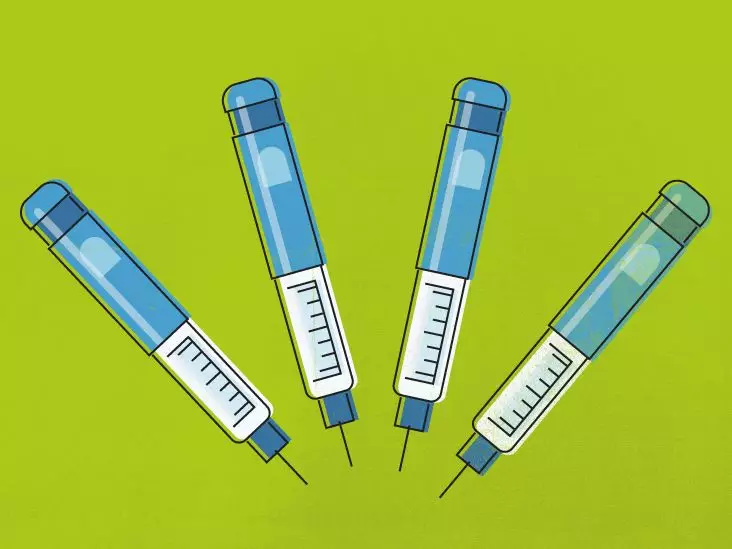The cost of Gvoke, a vital medication used for hypoglycemia emergencies, is not straightforward. Pricing is influenced by a whirlwind of factors, including treatment plans, the specific form of Gvoke prescribed (e.g., HypoPen, prefilled syringes, vials), insurance plans, and even the pharmacy you choose to fill the prescription. This multitude of variables means that two individuals with the same medication may end up paying different amounts. Understanding these financial intricacies is critical to navigate the healthcare landscape effectively.
Engaging in a dialogue with healthcare professionals—doctors, pharmacists, or insurance representatives—can provide clarity regarding individual costs for Gvoke. While the potential for these conversations may seem daunting, they are essential steps in managing both your health and finances. A proactive approach to understanding your options may unlock savings opportunities or alternative treatment routes that you might not have considered.
Generic Alternatives: A Cost-Effective Option?
It is noteworthy that while Gvoke itself does not have a generic alternative available, the active ingredient, glucagon, does come in generic forms for intramuscular administration. This reality sparks a pivotal conversation between patients and their healthcare providers about the cost-effectiveness of treatment plans. Generics typically offer a more affordable pathway due to factors like reduced research and testing requirements, but they might not be the optimal choice for every patient.
Patients keen on exploring these alternatives should engage their healthcare providers in a discussion. Such dialogues may not only uncover potential savings but also reveal different forms of glucagon that might be equally effective for managing hypoglycemia. Furthermore, understanding your insurance’s coverage can influence this decision significantly, and that conversation must occur alongside medical advice.
The Ins and Outs of Insurance Coverage
When it comes to insurance, the landscape can be riddled with red tape. Many patients find themselves in a position where prior authorization becomes necessary before they can access medications like Gvoke. This process, which requires your healthcare provider to justify the need for a specific drug, can sometimes feel like a barrier rather than the safety net it is intended to be. Understanding whether Gvoke requires prior authorization is vital, as initiating treatment without this approval could result in unexpected out-of-pocket expenses.
Navigating your specific insurance plan can be daunting, with each plan offering distinctly different levels of coverage, copays, and requirements. Consulting with your insurance provider not only clarifies potential coverage issues but may also uncover eligibility for savings programs designed to alleviate the financial burden associated with medications like Gvoke. Knowledge is power, and an informed patient is often more empowered to advocate for their health and financial responsibilities.
Savings Programs: A Lifeline for Patients
Fortunately, avenues exist for those struggling to afford Gvoke. Financial assistance programs like myGvoke can provide critical support. Patients can reach out directly to these programs to understand eligibility requirements and potentially gain access to discounted medications. Alternative resources such as Optum Perks offer coupons that may significantly decrease prescription costs, although it’s essential to remember that these cannot typically be combined with insurance.
With rising healthcare costs affecting patients more than ever, it is crucial to explore every possible avenue for savings. Utilizing tools and programs dedicated to assisting patients can reduce financial stress, enabling individuals to prioritize their health without the looming anxiety of affordability.
The Ongoing Conversation About Drug Costs
A pressing question remains: Why do brand-name drugs like Gvoke usually come with a steeper price tag compared to their generic counterparts? The costs attached to brand-name drugs often reflect extensive research and trials during development phases, meant to ensure their safety and efficacy. However, once a drug’s patent expires, generic variations flood the market, creating competition and typically driving down prices.
This dynamic raises critical discussions on pharmaceutical pricing practices, the influence of patents, and how these factors impact patient access to necessary medications. As advocates for accessible healthcare, patients and providers alike should continue to engage in conversations that challenge high-cost models and push for transparent pricing structures in the pharmaceutical industry.
In the evolving landscape of healthcare costs, it becomes paramount that patients are not only informed but also have a seat at the table. The dialogue about Gvoke and its pricing reflects broader trends in medical economics, where each patient’s voice contributes to a larger narrative about accessing vital treatments without enduring financial hardship.

